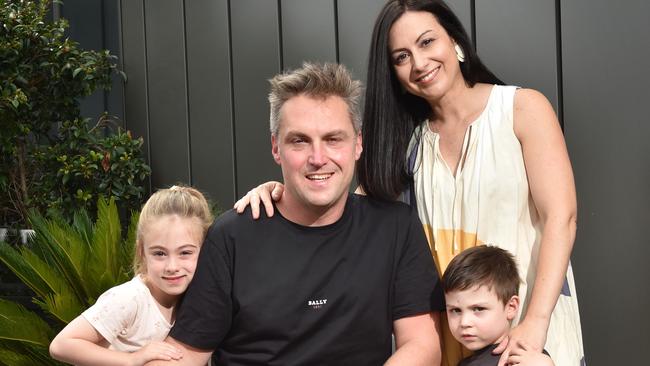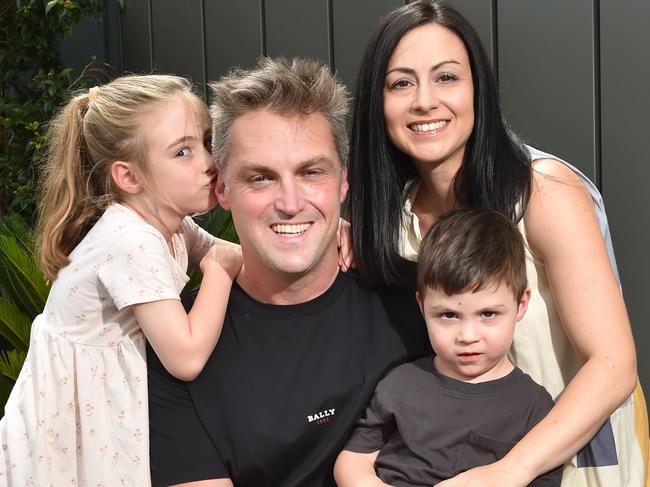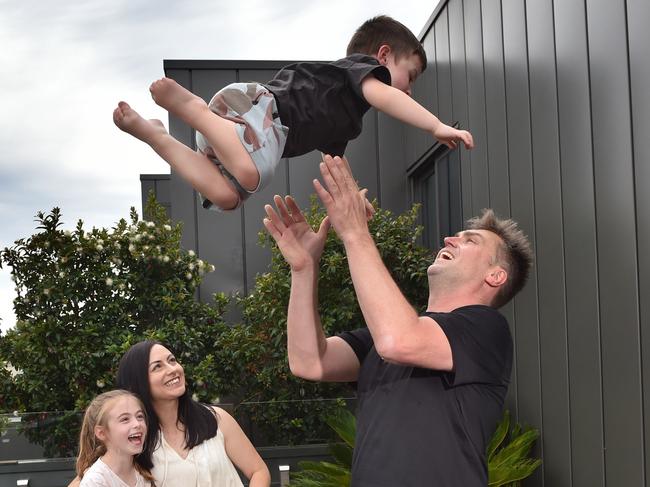Baker Institute recruiting hundreds of people for new study into young-onset diabetes
A growing number of Victorians aged 15-39 are being diagnosed with young-onset diabetes, a condition that could lead to kidney disease, nerve disease, heart disease and blindness.

Victoria
Don't miss out on the headlines from Victoria. Followed categories will be added to My News.
Young Victorians will be part of a unique 10-year study launched on Monday to help better understand the impact of aggressive young-onset diabetes.
The Prediction Study is being led by the Baker Heart and Diabetes Institute and will track the health of 2000 Victorians aged from 15 to 39 years with young-onset type 1 and type 2 diabetes.
Lead researcher Professor Dianna Magliano says despite a surprising increase in the numbers of young people being diagnosed, there have been few studies focused on them.
“We used to see occasional cases in younger people,” she said. “It was rare, but now it is uncommon. We need to understand what’s happening and why.
“We also don’t know how to stop young people getting serious complications, and young people get them really quickly.
“We are hoping the study will tell us what it is about their biology that is causing that.”

Professor Magliano says the health risks to young people of type 2 diabetes include kidney disease, vision problems that can lead to blindness, nerve disease, heart disease and hypertension.
While data is needed to understand how many people are developing young-onset diabetes, there are more than 1.2 million Australians living with type 2 diabetes, a condition that affects how the body processes blood sugar (glucose).
Of concern, Professor Magliano says, is that in younger people it can be more aggressive.
Historically type 1 diabetes is an auto-immune condition usually seen in childhood while type 2 develops in older adults. Now, Professor Magliano says, patterns are changing with new cases of type 1 in adults and type 2 in young people.
She says the community’s thinking of the chronic condition is skewed.
Traditionally it was thought type 2 diabetes only affected older people with risk factors such as obesity/being overweight, a family history of diabetes and unhealthy diet; smokers and those who did not exercise.
“We are seeing young adults develop type 2 diabetes in the prime of their lives where they are meant to be the most productive,” Professor Magliano says.
She said the first real look at young-onset diabetes was by a group in the US years ago looking to understand why the disease in someone younger could be so much worse.
“A lot of questions remain unanswered,” Professor Magliano says.
The Prediction pilot study will initially involve 80 people with type 1 diabetes and 80 with type 2 diabetes aged 15- 39 years diagnosed after 2014.

This will be followed by a large scale study involving a total of 2000 young people with type 1 and type 2 diabetes.
The study is online to appeal to younger participants and to encourage recruitment from people with diabetes living in regional and rural areas.
Marketing expert Professor Sean Sands says using social media and online technology can help engage young people and raise awareness.
“The problem is the perception that this is not going to impact me and that it is an older person’s illness,” the Melbourne father says.
He was diagnosed with young-onset diabetes at the age of 35 after going to The Alfred with severe stomach pain.
“For the first couple of years I managed with medication and then I went on to intense exercise and diet,” he said.
He lost 16kg and ran eight half marathons and says this allowed him to manage without medication for seven years.
“Then we had two young kids and then Covid and I was not able to do as much exercise, so I am back on medication,” Professor Sands said.
“The future is regular testing. I go to the Baker Institute twice a year and do my testing. I also want to get off medication again, so it will also be about getting fit.
“Ten years on that will be harder, but not impossible. There is always hope.”
To take part in the study, visit https://baker.edu.au/prediction





